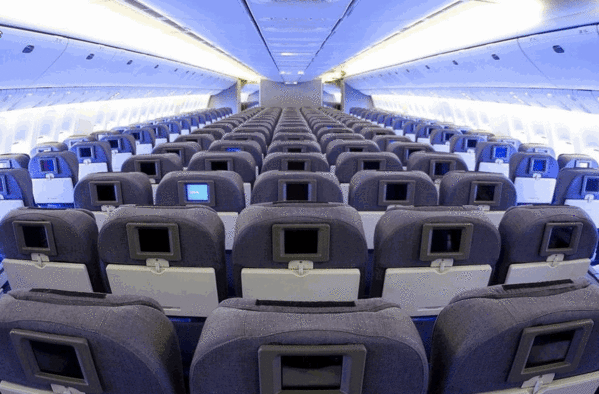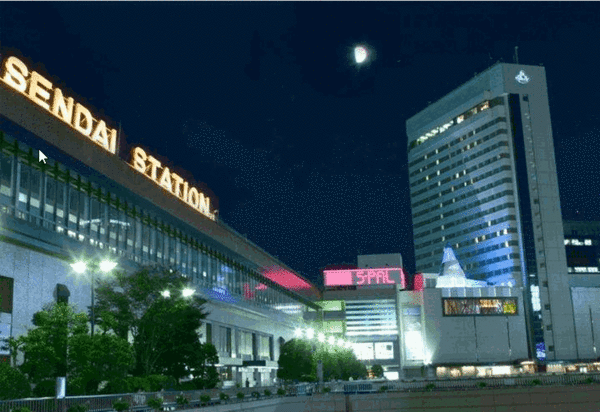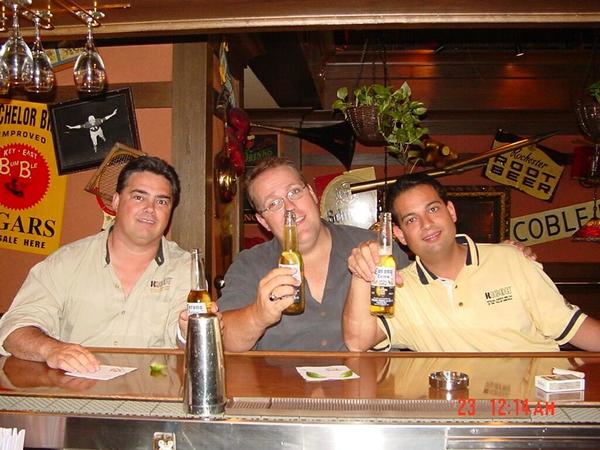I guess this could have been my first blog! Back in 2002 I wrote a journal while on a Ricoh sponsored trip to Japan. I found it today buried in the forums when I did some searching on threads from 2003. It does bring back awesome memories and I thought it might be a good read for all. Please enjoy and feel free to comment at the end in the reply section
June 4, 2002
To Japan and Back: Tales of a “Sell the Solution” Winner
“Sell the Solution,” a successful nationwide sales contest organized by the Digital Duplicator Marketing group, wrapped up this spring with the naming of three finalists and the announcement of an international finals, pitting the top U.S. sales reps against several of their worldwide counterparts. A weeklong vacation in Japan followed the finals of the contest. Art Post, digital duplicator rep for Century Office Supply in Middlesex, New Jersey, took the time and effort write a journal of the trip. We pass it along to you with a nod of thanks to Art.
The Ten Yen Trip
Monday It’s 2:30 a.m. Tokyo time. I have an aisle seat on a half-full Boeing 777 that will take the next 13 hours and 10 minutes to deliver myself and the other “Sell the Solution” finalists to our final contest presentations in Japan. After the contest finale we’ll be vacationing for several days in various destinations around the country. For the record, it costs ten dollars to make a phone call during the flight, no cell phones allowed. Movies and games are free. We’re on our way.
It’s 2:30 a.m. Tokyo time. I have an aisle seat on a half-full Boeing 777 that will take the next 13 hours and 10 minutes to deliver myself and the other “Sell the Solution” finalists to our final contest presentations in Japan. After the contest finale we’ll be vacationing for several days in various destinations around the country. For the record, it costs ten dollars to make a phone call during the flight, no cell phones allowed. Movies and games are free. We’re on our way.
We’re currently over Canada, just north of Green Bay. Many Japanese parents on the flight with little ones that are parading their kids up and down the aisles. I'm not sure who’s benefiting more, the parents or the kids.
Sirloin steak and rice for dinner on the flight. Later we have teriyaki chicken with soba noodles for a snack. We arrive at Tokyo at 1:40 p.m.
After an hour of processing at customs we take our bags and set out on what turns out to be a two-hour search for Kato, the digital duplicator product planning team manager, who’s scheduled to meet us.
When I finally meet Kato (see the “Ten Yen” incident,” below), he has four other RFG people with him: Enrique from LAD; Luis from Caracas, Venezuela; Kathy Zendal from Savin Chicago, and Russ Accocelli, a Savin DSM. Kato buys us tickets for the subway and for the bullet train trip we’ll take to Sendai.
It's 7:30 p.m. and dark; we’ll be arriving in Sendai soon. The trip north has taken us through a spectacular variety of scenic countryside: rice paddies, mountains and rolling hills that remind me of Gettysburg, Pa.
8 p.m. We arrive in Sendai. Mike Kaneko calls and we join him and Todd Takahashi for dinner at a small Japanese restaurant. We enjoy a few beers, along with beef gravy, tofu and teriyaki beef tongue. The soup – a concoction of hot water and green stuff floating in a bowl -- is actually very tasty. A few shots of sake, and it’s outside to meet Margaret Tam and Sam Brinkley, our two other finalists.
Tuesday Up at a jet lag-induced 4:30 a.m. I shower and meet Sam for a walk at 5:45 a.m. We walk around the city looking for coffee, finding only cold cans of coffee in a vending machine. It takes me another day to learn that the vending machines also have the hot stuff. We wander into a market that sells every kind of produce you can imagine, and some you can’t. We see many signs for those giant Japanese corporations.
Up at a jet lag-induced 4:30 a.m. I shower and meet Sam for a walk at 5:45 a.m. We walk around the city looking for coffee, finding only cold cans of coffee in a vending machine. It takes me another day to learn that the vending machines also have the hot stuff. We wander into a market that sells every kind of produce you can imagine, and some you can’t. We see many signs for those giant Japanese corporations.
Breakfast back at the hotel. The food’s not bad, not that good either. On the menu were eggs, bacon, sausage, cereal, cauliflower(!) and coffee. We meet additional Ricoh people from the UK, China, Australia, and, of course, Japan. After a few hours we boarded our bus, and it’s off to the factory.
I'm thinking the trip was about forty minutes and begin a three-hour tour, taking a look at new 75 ppm and 60 ppm machines as well as the latest JP series digital duplicators. After we're done with the tour we then have some time to rehearse our presentations, scheduled for later in the day.A few notes of interest: De-dusting is required procedure before we enter the factory; so is the wearing of slippers on the tour. We’re surprised to see that women assemble all of the copiers and digital duplicators. We see how the new 60’s & 75's are built and made ready for shipping, and we preview the new JP5500 digital duplicator, including a new paper-feed unit, available in European markets, for the JP series.
During the tour, a man from Totturi Ricoh explains that he’s set up a Digital Duplicator Club at home for all his customers. It’s a special area where customers can view sample prints, rent color drums and ask questions.
Lunch is an assortment of sandwiches (tomato, cucumber and egg salad), after which we begin our presentations. At the same time, we’re treated to a new technology that will be launched in Europe in the summer. It's called Seri-Print, and it operates with two UV lamps that cause a chemical reaction with the ink and allow printing on all types of media, even coated stock. It’s even compatible with the TC-II for making full-color prints with a dual-pass process. UL approval for the US market is pending, we’re told.My presentation, right after lunch, goes well, I think. We wrap up our presentations and head for the awards ceremony at a local hotel conference center. There we enjoy beer and ****tails, along with some unfamiliar but very interesting food. I meet 20 or 30 executives from Ricoh marketing as well as the new president and chairman of the board.
Sam, digital duplicator rep from Systems + Solutions, Miramar, Florida, wins the award for the best presentation among the many given by reps from around the world. Congratulations, Sam.At eight we’re treated to traditional Japanese drum playing. Drummers old and young dressed in ceremonial costumes bang on ancient drums of all different sizes. They’re incredible! We’re even allowed to bang the drums ourselves! I later learn from Mike Kaneko that they had volunteered to play, so that they could stay sharp for upcoming competitive tournaments.
Around 8:30 we head back to the Metropolitan Hotel in Sendai. I’m asleep in seconds.
WednesdayUp at 4:30 again! I go for a short walk and buy a cool can of coffee. We leave on a bullet train for Tokyo, where we change to another bullet train headed for the historic city of Kyoto in the southern part of the country. We arrive in Kyoto at two in the afternoon.
 The ancient city served as the capital of Japan until 1865, when it was moved to Tokyo. We’re staying at the New Mikayo, directly across the street from the train station.
The ancient city served as the capital of Japan until 1865, when it was moved to Tokyo. We’re staying at the New Mikayo, directly across the street from the train station.
Kyoto is rich in history and boasts many impressive temples and shrines. It has a population of nearly two million, and we’re told it gets a few inches of snow annually. We stow our baggage and head to Kyoto Tower. On the way, we see literally thousands of middle school students on class trips pouring out of the train station.At a busy mall in the train station, we look for and find the Mikiuno Pearls for my wife Kathy. I also buy a T-shirt and kimono for Ryann, my three-year-old niece. That night, Hiro, our Japanese guide from Ricoh, buys dinner for us at a traditional Japanese restaurant. Sam and I chuckle at the small portions but continue to eat. We’ve been hungry every day. After dinner we walk around town looking for a bar or a club to hang out in.
Kyoto has no skyscrapers. Instead, we see many two- and three-story buildings among the thousands of apartments and homes. Once we’re off the main streets, we find all the roads surprisingly narrow. Lovely ornamental trees and azalea bushes adorn many of the homes. The nighttime temperatures are in the low 70s with no rain.
Thursday
Finally! A morning when I can sleep past 4:30. The whole crew meets for breakfast and we embark on our private sightseeing tour in a cool, comfortable bus.Our guide, who speaks excellent English, seems to know everything there is to know about the area and gives us an informative and entertaining tour.
We visit several shrines and temples, as well as an authentic shogun castle, complete with moats, walls and squeaky floors. (The latter were designed to squeak as a way to warn the resident shogun of an intruder in the house.) Both moats are filled with colorful koi of all imaginable shapes and sizes. The garden, even with hundreds of schoolchildren roaming about, is lovely.Many of the schoolchildren, it seems, are learning English, and their teachers have assigned them the task of approaching Westerners and reading questions for us to answer. The kids are adorable and thoroughly enjoy Sam and the rest of our group. We take pictures of each other and Sam regales the kids with a lesson on how to roar “Hellowwwwww!” It’s a big hit with the little ones.
We see a shrine that’s covered in 18k gold foil. Most of these temples and shrines have stands selling snacks and souvenirs. I try a strange-tasting green-tea gumdrop covered in curry spice, and survive. We visit another temple, this one built in the late 1800's, among some truly spectacular gardens.
We lunch at The Kyoto Handicraft Mall, where Luis drops 100,000 yen buying gifts for his employees.
Next were off on a strenuous hike to the Shrine on the Mountain, a collection of buildings, mostly made from cypress trees, constructed hundreds of years ago. Some of the main support beams appear to be at least five feet in diameter. The walk to the Shrine follows a narrow street lined with shops. Sam and I grab a beer to strengthen us for the steep climb.
It’s back to the hotel to get ready for the much-anticipated miako/geisha dinner. The restaurant and gardens are beautiful. We sit on the floor and are entertained by one miako, junior geisha, and one geisha. The meal, called Shabu Shabu, consists of boiled beef with vegetables in oil.
After breakfast, we board the 170-mile-per-hour Bullet Train Nozomi for the trip back to Tokyo. Beer drinking and smoking are allowed, and attendants roam the aisles selling refreshments. Fare for the train trip to Tokyo: about $100.00. We arrive in Tokyo around 1 p.m. and promptly check in to the Meridian Pacific Hotel. A change of clothes and we’re off to a nearby Friday's for a traditional (?) Japanese meal of ribs, beer and nachos. Later Sam and I take a $40 cab ride to Electronic City to try and buy a cell phone. To our amazement, no one will sell us one. Sam buys a Sony Clie' PDA, and I pick up an MPG player for my son Nick
We arrive in Tokyo around 1 p.m. and promptly check in to the Meridian Pacific Hotel. A change of clothes and we’re off to a nearby Friday's for a traditional (?) Japanese meal of ribs, beer and nachos. Later Sam and I take a $40 cab ride to Electronic City to try and buy a cell phone. To our amazement, no one will sell us one. Sam buys a Sony Clie' PDA, and I pick up an MPG player for my son Nick
There’s no time for a cab, so we head through the pouring rain to take the subway back to the hotel. Inside the station is an overwhelming mass of humanity. Worse, we have no clue what tickets to buy. Red? Blue? Green? Combo? Who knows? I remember the electronics shop’s owner’s good English and walk back to ask for help. To our amazement and appreciation, he comes back with us and buys us the appropriate tickets. He even walks us to the right track. So here we are, Sam and I, two large Americans carrying shopping bags and powder blue umbrellas, traveling among average Japanese on an obscure rail line that rarely carries tourists. Cool.
So here we are, Sam and I, two large Americans carrying shopping bags and powder blue umbrellas, traveling among average Japanese on an obscure rail line that rarely carries tourists. Cool.
We arrive back in time for the farewell party on the top floor of the hotel. All the top marketing people for Tohoku Ricoh are there along with Kirk Yoshida's boss, Mr. Sugita.
Saturday
5:15 p.m., Tokyo time. An uneventful takeoff and we’re over the Pacific, enjoying drinks and peanuts. I have a military man seated next to me who promptly puts a blanket over his head and falls asleep. Hopefully, the movie will start soon.
6:15 p.m., Tokyo time. We eat pork, rice, salad and cake with chopsticks and enjoy another beer. We’re over the Pacific with the sun behind us, approaching the International Date Line at 32,000 feet at a speed of 593 mph. Time in Tokyo, 6:15 p.m. time at our present location, the Bay of Okhutek, 7:15 p.m. Time in New Jersey, 5:15 a.m.
3:13 a.m., Tokyo time. Over the Great Lakes, and the flight attendants are getting ready to serve the last meal. Newark, here we come.
Back home, what a great trip!
“The Ten Yen Incident Revisited”
Finally, after 14 hours of imprisonment in a flying aluminum tube I could start to enjoy my Japan trip.
I emerged from customs and passport control with flying colors and proceeded to the terminal to be greeted by Kato (Ricoh Japan rep).
I arrived at the end of the terminal and looked for a Kato or a Ricoh sign. After many minutes of looking there was o sign, no Kato! No problem, I thought. Hiro Ricoh USA rep) from New Jersey had given me Kato’s cell phone number.
Well, it wasn’t as easy as I thought. I had 22 American dollars on me, so I headed for the currency exchange booth. Then it occurred to me that I had AMEX Traveler’s Checks. I gave one to the teller, who promptly refused it. Ok, back to plan A; I exchanged the $22 for about 2,400 yen and headed for the phone.
A sign on the pay phone read, “10 – 100 yen.” Well, thinking positively (and cheaply). I deposited 10 yen and dialed the number, which began to ring. Kato promptly answered, and I replied. “Kato, this is Art from Ricoh. I’m at the …click. Disconnect tone. No problem, I thought, I must have caught a bad line. I deposited another 10 yen and redialed.
“Kato, it’s Art from Ricoh. Where are…” Again, the disconnect tone. Starting to get the idea, I tried again and blurted out as fast as I could, “Kato, I’m at terminal one. Where are you?” “I’m at…” Kato replied. Click, mfer I thought!
Enough of this! I went to the phone card machine and bought a thousand-yen card. Now I could talk to Kato as long as I liked.
I figured out the phone card and got through to Kato on the third try. “Wait outside the terminal,” he said, and I happily complied.
Another 15 minutes, no Kato. I went back inside and called again. “Stay where you are,” he said. “I’m between the terminals and on my way.” Eventually we decided to walk toward each other instead. I grabbed my things and headed for terminal two.
A few more minutes of searching and there was Kato with the Ricoh sign. He advised me that there were others that he had met and that I was the last one in the group. He led me to the others, who were sitting down, all together by the escalator, behind the phone booths at terminal one, where I had been calling from the whole time.
-=Good Selling=-


















